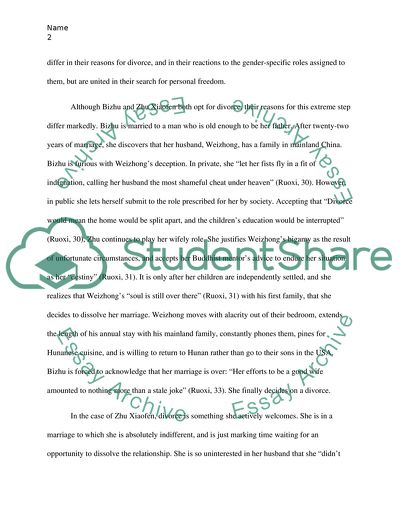Cite this document
(Bizhu and Zhu: Freedom Essay Example | Topics and Well Written Essays - 1750 words, n.d.)
Bizhu and Zhu: Freedom Essay Example | Topics and Well Written Essays - 1750 words. https://studentshare.org/literature/1774252-chinese-women-writers
Bizhu and Zhu: Freedom Essay Example | Topics and Well Written Essays - 1750 words. https://studentshare.org/literature/1774252-chinese-women-writers
(Bizhu and Zhu: Freedom Essay Example | Topics and Well Written Essays - 1750 Words)
Bizhu and Zhu: Freedom Essay Example | Topics and Well Written Essays - 1750 Words. https://studentshare.org/literature/1774252-chinese-women-writers.
Bizhu and Zhu: Freedom Essay Example | Topics and Well Written Essays - 1750 Words. https://studentshare.org/literature/1774252-chinese-women-writers.
“Bizhu and Zhu: Freedom Essay Example | Topics and Well Written Essays - 1750 Words”. https://studentshare.org/literature/1774252-chinese-women-writers.


